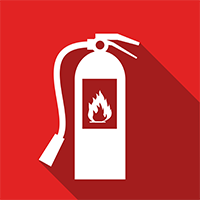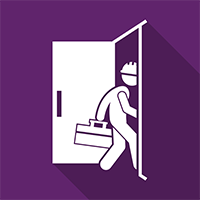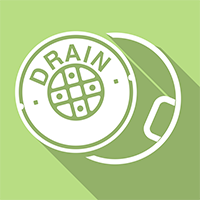WE’RE OPEN – OUR COVID19 STATUS. MORE

SFS Fire Engineering Ltd
871/872 Plymouth Road
Slough, Berkshire, SL1 4LP
Tel. 02038 414 626
Email. sales@sfs-fire.com
Health & Safety

This course is aimed at anyone who uses abrasive wheels, or employs people who use abrasive wheels as part of their work.
There are a wide range of tools and processes that use abrasive wheels and ensuring these are used correctly and safely is of paramount importance. Applications range from hand grinding to disc cutting. They can be used at all stages of a work process, for making preliminary cuts and scores in materials, or for fine polishing and finishing.

In December 2008 the Food Standards Agency agreed a National Food Hygiene Rating Scheme. It is now running in all areas of Wales, Northern Ireland and in 99% of England.
In practice the rating scheme is designed to ensure that businesses that are broadly compliant with food law and are managing food safety risks will receive a rating of three ... and those who are managing the risk well will receive a rating of four or five. However, significant lapses in any of the scoring criteria can also have a significant effect on the rating.

Allergies occur when the body’s immune system reacts to a usually harmless substance as though it is harmful. Why this happens, isn’t clear. However, most sufferers come from families that have a history of allergies, or related problems. Every year, the number of people with allergies is increasing so having an awareness of potential allergens and why they can be harmful is becoming more important, particularly if you work in the service industry.

Asbestos is probably the most dangerous building material ever used. Every year thousands of people fall ill and die because of exposure to asbestos and it was widely used by the construction industry right up until the year 2000.
The Control of Asbestos Regulations (CAR) apply to employers, employees, self-employed persons and duty holders and cover all work with asbestos containing materials. Regulation 10 of CAR states that every employer must ensure that adequate information, instruction and training is given to employees who are liable to be exposed to asbestos. This includes maintenance workers and others who may come into contact with or disturb asbestos.

Asbestos is probably the most dangerous building material ever used. Every year thousands of people fall ill and die because of exposure to asbestos and it was widely used by the construction industry right up until the year 2000.
The Control of Asbestos Regulations (CAR) apply to employers, employees, self-employed persons and duty holders and cover all work with asbestos containing materials. Regulation 10 of CAR states that every employer must ensure that adequate information, instruction and training is given to employees who are liable to be exposed to asbestos. This includes maintenance workers and others who may come into contact with or disturb asbestos.

Our display screen equipment courses are aimed at users of display screen equipment (DSE) and those responsible for assessing display screen equipment. A ‘user’, is anyone who regularly uses display screen equipment for a significant part of their normal work. In practice, if you use display screen equipment continuously for more than one hour a day, then you’re a ‘user’.

Current legislation, The Regulatory Reform (Fire Safety) Order 2005, applies to all workplaces regardless of the number of employees and requires employers to provide adequate training in fire awareness for all members of their staff.
Our online fire safety training courses are aimed at all employees to assist them in identifying and reducing the risk that fire presents in the workplace.

Current legislation, The Regulatory Reform (Fire Safety) Order 2005, applies to all workplaces regardless of the number of employees and requires employers to provide adequate training in fire awareness for all members of their staff.
Our online fire safety training courses are aimed at all employees to assist them in identifying and reducing the risk that fire presents in the workplace.

Current legislation set out by the Health and Safety at Work Act along with the HSE’s updated code of practice known as L8, state that companies and building owners have a legal duty to manage Legionella.
Our interactive training course is aimed at all employers and staff to assist them in identifying the danger that Legionella poses, as well as covering ways to identify and assess sources of risk from Legionella on the premises.

This course defines behavioural safety and explains the origins of the concept. It covers how it can be implemented in the workplace and some of the potential benefits. It includes analysis of some examples of 'at risk behaviours' and some examples of ways you can measure how well your organisation is doing when it comes to safety. Finally it touches on some of the key laws regarding health and safety in the workplace and how to ensure positive workforce attitudes.

The Construction Design and Management Regulations cover the management of health, safety and welfare when carrying out construction projects. Whatever your role in the construction industry these regulations are there to improve your health and safety.
They are intended to ensure that projects are planned and run effectively and safely right from the start.

This course covers what you need to know about the Control of Substances Hazardous to Health (COSHH). It’s aimed at anyone who is exposed to Substances Hazardous to Health at work, as well as line managers with responsibility for such people.

Our display screen equipment courses are aimed at users of display screen equipment (DSE) and those responsible for assessing display screen equipment. A ‘user’, is anyone who regularly uses display screen equipment for a significant part of their normal work. In practice, if you use display screen equipment continuously for more than one hour a day, then you’re a ‘user’.

Electricity is the lifeblood of modern society, it enhances our quality of life and we are becoming increasingly reliant on it to power tools and devices we use for work and entertainment. However, although electricity has many benefits it can also be a hidden killer as it can’t be seen, felt, smelled or heard until someone comes into contact with it.

What is Emergency First Aid? Well it’s exactly that, the first aid to be offered if an incident occurs. Not many of us are confronted with scenes of blood and gore in our everyday lives – so usually first aid could be as simple as sticking a plaster on a small cut.
But what if you did find yourself confronted with a more serious situation. This Emergency aid course will highlight some of the most common situations that you might come across and the actions that you can take to help.

Current legislation, The Regulatory Reform (Fire Safety) Order 2005, applies to all workplaces regardless of the number of employees and requires employers to provide adequate training in fire awareness for all members of their staff.
Our online fire safety training courses are aimed at all employees to assist them in identifying and reducing the risk that fire presents in the workplace.

Current legislation, The Regulatory Reform (Fire Safety) Order 2005, applies to all workplaces regardless of the number of employees and requires employers to provide adequate training in fire awareness for all members of their staff.
Our online fire safety training courses are aimed at all employees to assist them in identifying and reducing the risk that fire presents in the workplace.

Current legislation, The Regulatory Reform (Fire Safety) Order 2005, applies to all workplaces regardless of the number of employees and requires employers to provide adequate training in fire awareness for all members of their staff.
Our online fire safety training courses are aimed at all employees to assist them in identifying and reducing the risk that fire presents in the workplace.

HACCP stands for Hazard Analysis and Critical Control Point. It is an internationally recognised food safety management system that is used to identify, evaluate and control hazards which are significant for food safety.
Rather than being a reactive system, HACCP is pro-active. The focus is on prevention of hazards rather than relying mainly on end-product testing.
This course will start by covering some of the key terms you will need to understand before moving on to identifying critical control points and analysing some of the key hazards. It’ll show you how to determine control points and how to avoid cross-contamination in the food chain. It will also cover some of the control measures that can be taken along with how to address a problem is a critical limit is breached.

Every day, thousands of people are exposed to situations where they are left alone in work premises, when visiting members of the public during their working day, or working from home.
There are many risks associated with working in isolation, without the support of colleagues. These risks can include accidents and violence.
This course acts as an introduction to personal safety for lone workers and applies to those that work alone within business premises, mobile workers and homeworkers.

Risk assessment is a systematic method of looking at work activities, and considering the things that could cause significant harm to people, property or the environment.
The most important purpose of risk assessments is to help prevent accidents and ensure the safety of employees and anyone affected by workplace activities.
At the end of this course, candidates will have an understanding of what a risk assessment is and how to complete one. To achieve this the course will define important terms, provide some basic background information to explain how important risk assessments are and discuss some of the legislation that applies. It will then go on to provide practical advice on how to identify hazards and analyse risk before finishing off by explaining the responsibilities of both employers and employees with regards to risk assessment.

Food Handlers and their employers have a legal duty to manage Food Safety. These obligations are set out by a number of EU and UK Laws. These Laws state that food handlers must make sure that food which is prepared, cooked, served or sold, is safe for human consumption. Failing to follow food safety standards can cause food to become contaminated with potentially fatal consequences.
Training your employees with our online system will go a long way to give them greater awareness of the dangers that poor food safety standards pose, as well as covering how food safety risks actually arise and how to control and prevent them.

Food Handlers and their employers have a legal duty to manage Food Safety. These obligations are set out by a number of EU and UK Laws. These Laws state that food handlers must make sure that food which is prepared, cooked, served or sold, is safe for human consumption. Failing to follow food safety standards can cause food to become contaminated with potentially fatal consequences.
Training your employees with our online system will go a long way to give them greater awareness of the dangers that poor food safety standards pose, as well as covering how food safety risks actually arise and how to control and prevent them.

Food Handlers and their employers have a legal duty to manage Food Safety. These obligations are set out by a number of EU and UK Laws. These Laws state that food handlers must make sure that food which is prepared, cooked, served or sold, is safe for human consumption. Failing to follow food safety standards can cause food to become contaminated with potentially fatal consequences.
Training your employees with our online system will go a long way to give them greater awareness of the dangers that poor food safety standards pose, as well as covering how food safety risks actually arise and how to control and prevent them.

Each year in the UK, people are killed, injured and suffer work-related illnesses while carrying out their jobs.
So Health & Safety is a significant concern. The government, employers and workers all have an essential role to play in reducing deaths and accidents and preventing ill-health at work.
This course is aimed at people starting out in the construction industry and can be used as part of their induction process or as preparation for the online accredited exam. Whilst this course, Level 1 Health & Safety in a Construction environment provides you with a qualification in its own right, it can also form part of your CSCS green card application.

Food Handlers and their employers have a legal duty to manage Food Safety. These obligations are set out by a number of EU and UK Laws. These Laws state that food handlers must make sure that food which is prepared, cooked, served or sold, is safe for human consumption. Failing to follow food safety standards can cause food to become contaminated with potentially fatal consequences.
Training your employees with our online system will go a long way to give them greater awareness of the dangers that poor food safety standards pose, as well as covering how food safety risks actually arise and how to control and prevent them.

Food Handlers and their employers have a legal duty to manage Food Safety. These obligations are set out by a number of EU and UK Laws. These Laws state that food handlers must make sure that food which is prepared, cooked, served or sold, is safe for human consumption. Failing to follow food safety standards can cause food to become contaminated with potentially fatal consequences.
Training your employees with our online system will go a long way to give them greaterawareness of the dangers that poor food safety standards pose, as well as covering how food safety risks actually arise and how to control and prevent them.

Food Handlers and their employers have a legal duty to manage Food Safety. These obligations are set out by a number of EU and UK Laws. These Laws state that food handlers must make sure that food which is prepared, cooked, served or sold, is safe for human consumption. Failing to follow food safety standards can cause food to become contaminated with potentially fatal consequences.
Training your employees with our online system will go a long way to give them greater awareness of the dangers that poor food safety standards pose, as well as covering how food safety risks actually arise and how to control and prevent them.

In the last decade the threats to our society have multiplied and evolved in many ways. Terrorist organisations have transferred their fight from Iraq and Afghanistan to our back garden, Europe –and we have seen the damage that a small number of determined individuals can do.
This course will start by introducing the role of the lockdown officer then discuss some of the likely reasons for a lockdown, go over some of the steps you can take to prepare your school for lockdown as well as what to do in the event of a lockdown taking place.

Manual handling, or to be accurate, incorrect manual handling, is one of the most common causes of injury at work. To try and combat manual handling problems, the Manual Handling Operations Regulations were introduced.
The Regulations lay out duties for both employees and employers. They give a general requirement that employees must be trained to manually handle correctly including the use of any equipment their employer provides to handle loads safely.

Around 17,000 people in the UK suffer deafness, ringing in the ears or other ear conditions caused by excessive noise at work. However, this damage is preventable if the right steps are taken but once your hearing has gone it will not come back.
This course starts by going into detail about how dangerous noise can be in the workplace, and the main safety issues you should be aware of. It will take you through some of the simple science, the main laws that apply and introduce you to noise level limits. It also covers some of the specific health risks and how to avoid them by producing risk assessments, action plans and through the provision of appropriate Personal Protective Equipment. The course will conclude by examining how to provide information and instructions to employees, along with the most professional way to conduct workforce health surveillance.

First aid covers a multitude of skill sets and responses to many medical situations. Its primary aim, is to provide immediate medical care and treatment that will either resolve the situation (in less serious 'everyday' cases) or provide an essential short-term emergency stop-gap until professional medical assistance is in place.
The aim of this course is to equip you with the theoretical knowledge, skills and confidence you need to deal with paediatric first aid situations. It covers all of the key topics including: emergency planning, assessing a situation, basic Life Support, CPR, shock, fractures, bleeding and a range of other minor illness and injuries.

In the UK there are approximately 144 fatalities in the workplace and around 621,000 non-fatal injuries every year. Personal Protective Equipment (PPE) plays a vital role in managing Health & Safety risks. However, historical data shows many workers suffering injury were not wearing this clothing.
This course will show how wearing PPE plays a crucial role in preventing and reducing fatalities, injuries and diseases that would otherwise occur in the workplace. It includes details of a wide range of PPE options, examines the legislation and regulations that govern the responsibilities of employers, employees and suppliers, and provides a real-life case study showing the law in action.

Slips, trips and falls account for almost a third of non fatal injuries at work. It is a widely held belief that with just a few minor changes to working practices and attitudes this could be reduced significantly.
This course will introduce you to some of the statistics relating to slips, trips and falls and dispel some of the myths surrounding them. It also touches on the law as it relates to slips, trips and falls. It contains real examples of where things have gone wrong and some practical steps that could have been taken to prevent these incidents. The course also covers some of the straightforward changes that can be made in most businesses to significantly reduce the risk of a slip, trip or fall incident occurring. The final module takes this to the next level and looks at it from a management perspective.

This course is designed for managers and supervisors to help them understand their essential day-to-day responsibilities.
When a candidate passes this course, they will receive a certificate which demonstrates that they can supervise and train staff to handle food safely and hygienically.
This is a comprehensive course which starts with basic definitions of key words, then follows a logical path through other topics including the types of food hazards, personal hygiene, pest control, legislation, enforcement, and the design and cleaning of food premises and equipment. It also discusses how to implement a successful food safety management system.

This course is aimed at anyone who undertakes work at height, or who employs people who regularly work at height.
The term work at height applies to a wide range of situations ranging from the obvious ones like working on platforms, ladders, scaffolds or stages to working alongside deep trenches. This is because the crucial thing to understand about work at height is that it’s not how far you climb, but how far you can fall. ‘Falls’ doesn’t just mean people falling from heights. If materials or equipment fall, that will obviously present an equally dangerous hazard to anyone below.

At the end of this course you’ll be able to demonstrate your understanding of the control measures to be followed when working in, or near to, confined spaces as detailed in a safe working procedure
This course will cover the legislation associates with working in confined spaces. What counts as a confined space, the potential hazards, safe operating procedures, emergency procedures and rescue.

Working safely is in the interest and concern of all staff, both employers and employees. Health and safety is one of the few areas where the law places specific duties specifically on employees so a knowledge of where this applies and how to ensure that it is adhered to is vital to protect individuals and businesses.
Most workers feel that accidents are something that only happens to other people. The reality is that too many workers are coming to harm by not observing Health and Safety laws and not working to safe systems of work - the physical, mental and financial burden of these accidents can have a huge impact on themselves, their families and their colleagues.

In the UK, the private security industry provides manned, physical and technical systems to help protect people, premises and property. It can also help prevent and detect crimes and any activities that could be considered unauthorised as well as offering expertise in monitoring and responding to safety risks.
This course is an introduction to the private security industry, and the main services it covers. It discusses the body which regulates the industry, highlights the standards of behaviour expected from security operatives, and the law as it relates to the industry.

This course covers general health and safety issues that apply to a wide range of types of businesses and sectors, from office and retail environments to workshops and factories. The wide range of topics covered makes this a great course to act as an introduction to health and safety in the workplace that can then be built on with more detailed courses that cover specific hazards that employees might come into contact with in specific workplaces. This makes it a useful part of the induction process.
By the end of this course the candidate will have an understanding of health and safety legislation and definitions of common terms associated with health and safety. This is followed up with some statistics outlining the most common causes of accidents in the workplace.
Business Skills

This course is aimed at managers and staff in all industries who play a role in reducing drug, alcohol and substance misuse in the UK.
The course starts with official statistics to illustrate the scale of drug and alcohol abuse in the UK. You'll learn in detail about commonly used drugs, including cannabis, cocaine, heroin, LSD, ecstasy and some new designer drugs.

Positive Handling is a very serious subject. Knowing when and how to act in a difficult situation can be the difference between a positive outcome and a potentially career ending prosecution.
This course will start by looking at some examples and statistics which highlight the seriousness and extent of aggressive pupil behaviour, it will then go on to explain how you can identify the stages of aggression and provide some tips on how you could de-escalate a pupil before they lash out. It also looks at where the law stands on this subject and finally best practice in theory if you ever do need to restrain a pupil.

Intelligence indicates that further terrorist attacks in our country are ‘highly likely’.
Experience tells us that the threat comes not just from foreign nationals, but from terrorists born and bred in Britain. It is therefore vital that our counter-terrorism strategy contains a plan to prevent radicalisation and stop would-be terrorists from committing mass murder. The Prevent strategy, published by the Government is part of the overall counter-terrorism strategy.
This course starts with an overview of the Government’s Prevent strategy, and then looks at some of the reasons people become extremists. It goes on to cover the objectives of the Prevent strategy, how to base your actions on a risk based approach, what to do if you are concerned and much more.

Our Safeguarding courses have been created because, first and foremost, each and every one of us has basic human rights. Chief among these is the right to be healthy, happy and treated well, regardless of race, age, gender or location. When these rights are abused in some way it’s wrong, and it is therefore vital that guidelines, policies and procedures are followed to enable everyone, without exception to live a life in which these basic values and rights are maintained and upheld.
This course is aimed at anyone who has a duty of care for, or comes into contact with, adults in need of care and support, either as a paid professional or a volunteer. This includes, but isn’t limited to, those that work in domiciliary care, the NHS, community centres, prisons or with a family member at home, and sets out the roles and responsibilities everyone must undertake to protect an adult’s right to live in safety, free from abuse and neglect. You and the organisation you work for must take appropriate and proportional measures necessary for the protection of adults in your care, while still ensuring they are supported and empowered to have control over how they want to live their lives and this course can bring you one step closer to being able to do this.

Our Safeguarding courses have been created because, first and foremost, each and every one of us has basic human rights. Chief among these is the right to be healthy, happy and treated well, regardless of race, age, gender or location. When these rights are abused in some way it’s wrong, and it is therefore vital that guidelines, policies and procedures are followed to enable everyone, without exception to live a life in which these basic values and rights are maintained and upheld.
Everyone, regardless of their age, gender, religion, ethnicity or background has the right to a healthy, happy life. Safeguarding is about minimising and managing the risks to vulnerable individuals.
This course, ‘Safeguarding Children’, is aimed at anyone who has a duty of care for, or comes into contact with children in their chosen profession.

The alcohol licensing laws of the United Kingdom regulate the sale and consumption of alcohol. Any organisation, business or individual who wishes to sell alcohol must have a licence. This is obtained from a Licensing Authority.
This course starts with an overview of UK alcohol licensing laws and the importance of promoting the four key licensing objectives.

The alcohol licensing laws of the United Kingdom regulate the sale and consumption of alcohol. It is important for anyone working in licensed premises to have a basic understanding of these laws and how they apply to them.
This course starts with an overview of UK alcohol licensing laws and the importance of the four key licensing objectives.